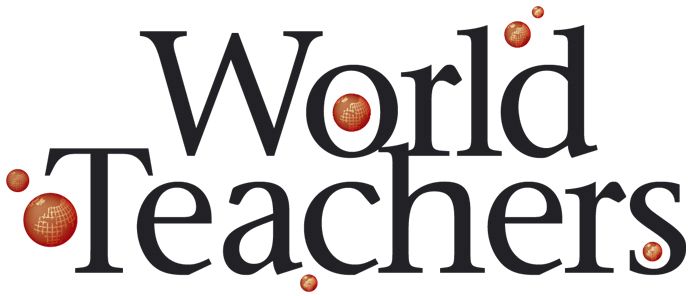
World Teachers Festival: a celebration of globally-minded educators
On 21 March 2024, the ‘learners’ at Wolfert Bilingual in Rotterdam were not teenagers, but some 180 teachers and teacher educators from around the Netherlands and beyond. Those delegates were bound by a common interest in exploring and engaging with teaching and learning in linguistically and culturally diverse contexts.
More than a professional development day, this was the World Teachers Festival: an opportunity to come together and celebrate our role as globally-minded educators in a colourful and rapidly-changing society.
Festival feel
An accurate reflection of the event’s title, the mood was one of positivity and togetherness. This was in no small part the attitude modelled by the speakers. The programme, built around ICLON’s World Teacher Competences framework, was topped and tailed by impactful ‘headline acts’. Aminata Cairo spoke on the importance of ‘holding space’ for one another and being inspired by the blues aesthetic to work through rather than avoid discomfort on the path to doing so. Ellen-Rose Kambel and Valentina Spyropoulou, of the Language Friendly School, discussed breaking through monolingual norms in education. And Independent Thinking’s Ian Gilbert inspired the audience to activate real thinking in the classroom.

Also on offer was an array of workshops led by ICLON teacher educators, expert teachers, researchers and renowned teacher trainers. Topics addressed included culturally-responsive teaching, supporting multilingual learners, Content and Language Integrated Learning (CLIL), addressing controversy in the classroom, equal opportunities, decolonizing the curriculum, intercultural communication, international collaboration and teacher mobility. A couple of those workshops are described below.
Workshop in a language you don't understand
The workshop ‘Teaching multilingual learners’ by Hanna Harmander (EAL Coordinator, International School of the Hague), was carried out entirely in Swedish for the first 20 minutes. The participants listened to an 8-minute story (about the biography of Selma Lagerlöf, the first woman to receive a Nobel Prize for literature). Then they had to place singular pieces of information on a timeline.
Afterwards, the participants reflected on how it felt taking part in a class in a language they couldn't understand. They got suggestions on how to teach in multilingual classes, and on how to use translanguaging by grouping students of different cognitive levels who share the same first language.

Art in international contexts
During his workshop ‘International contexts’ Peter Sansom shared his experience as an art teacher during different exchange programs. The first project saw Dutch students interact with Danish students from a distance. Peter Sansom asked some professional photographers to make some of their works available and each group of students had to describe a photo in English to the best of their ability. The other group had to reproduce the same composition and convey the same message and emotions. The participants of the workshop were asked to make a drawing of the composition of one of the photos based on the description of the students.
The second project was a series of multidisciplinary activities that included watching movies, describing picture books and writing poetry. All with one common theme in the background: emigrants seeking a better life and refugees fleeing from war zones.
World Teachers in any context
The World Teachers Festival is an extension of the ICLON World Teachers Programme (WTP): a bilingual initial teacher education programme, focusing on linguistically and culturally-aware teaching in international and bilingual schools in the Netherlands. But the concept of being a ‘world teacher’ is not one reserved for ICLON students. The World Teacher Competences – conscious attention for language, culture, diversity and criticality – are central to global citizenship, be it for students, teachers or teacher educators, in any educational context. Events such as this offer the opportunity for cross-pollination between school contexts, and we hope this World Teachers Festival will be the first of many.
Feedback from participants
‘Aminata Cairo's story made me feel again that we have the most beautiful job in the world.’
‘I really enjoyed the workshop “Pedagogy of hope in times of crises”. It made me think of what message we send as adults to our students and will make a difference in class.’
‘I really like the format of one-hour workshops. It allows the workshop leader to present a small idea/intervention/framework and have the participants acquaint themselves with it and play around with it.'

Do you have ideas or professional development needs related to the World Teachers Festival or World Teachers Programme? Please get in touch via nascholing@iclon.leidenuniv.nl.
Interested in studying to become a teacher through the World Teachers Programme (WTP)? See www.worldteachers.nl. Note that the WTP is a bilingual degree and therefore requires proficiency in both English and Dutch.
